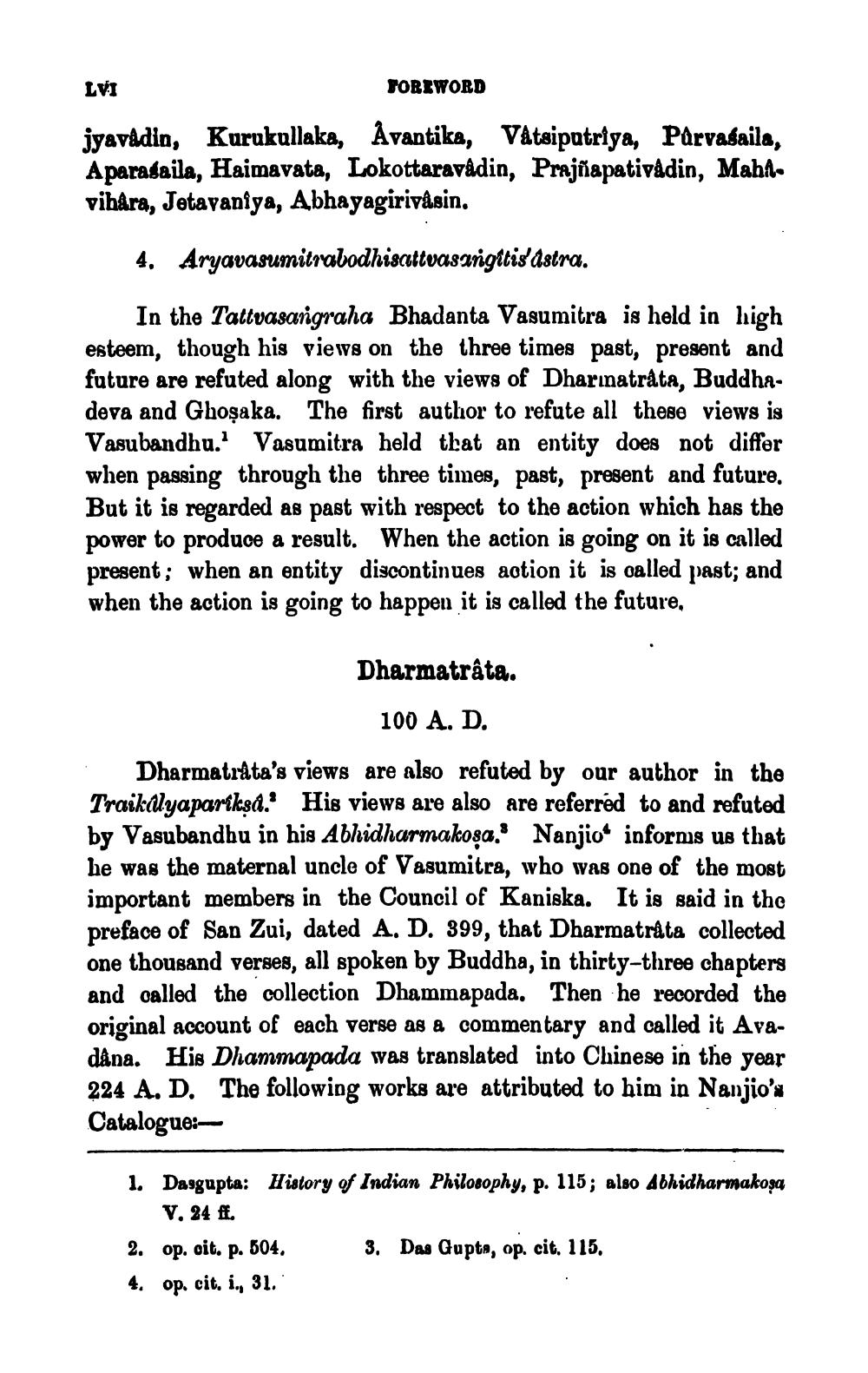________________
LVI
FOREWORD iyavadin, Kurukullaka, Avantika, Vatsipatriya, Parvasaila, Aparafaila, Haimavata, Lokottaravådin, Prajitapativadin, Mahivihara, Jetavaniya, Abhayagirivasin.
4.
Aryavasumitrabodhisattvasangitis' Astra.
In the Tattvasangraha Bhadanta Vasumitra is held in high esteem, though his views on the three times past, present and future are refuted along with the views of Dharinatråta, Buddha. deva and Ghoşaka. The first author to refute all these views is Vasubandhu.' Vasumitra held that an entity does not differ when passing through the three times, past, present and future. But it is regarded as past with respect to the action which has the power to produce a result. When the action is going on it is called present; when an entity discontinues action it is called past; and when the action is going to happen it is called the future,
Dharmatrâta.
100 A. D.
Dharmatiata's views are also refuted by our author in the Traikdyaparikså. His views are also are referred to and refuted by Vasubandhu in his Abhidharmakosa. Nanjio* informis us that he was the maternal uncle of Vasumitra, who was one of the most important members in the Council of Kaniska. It is said in the preface of San Zui, dated A. D. 399, that Dharmatrata collected one thousand verses, all spoken by Buddha, in thirty-three chapters and called the collection Dhammapada. Then he recorded the original account of each verse as a commentary and called it Avadåna. His Dhammapada was translated into Chinese in the year 224 A. D. The following works are attributed to him in Nanjio's Catalogue:
1. Dasgupta: History of Indian Philosophy, p. 115; also Abhidharmakosa
V. 24 ff. 2. op. cit. p. 504. 3. Das Gupta, op. cit. 115. 4. op. cit. i., 31.




